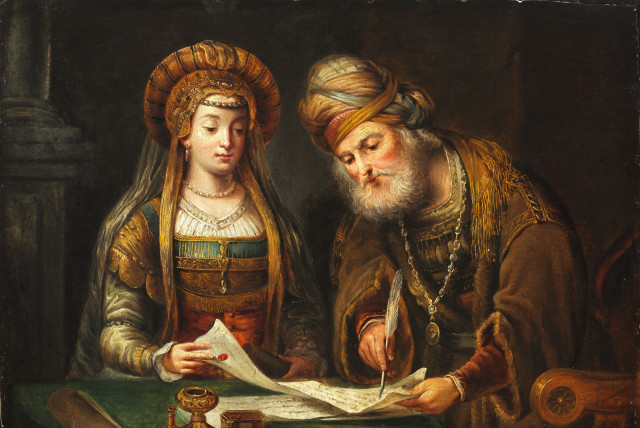Netanyahu’s final act: Biblical triumph or Shakespearean tragedy? - opinion

Had Netanyahu retired after losing the 2021 election, his legacy may have remained intact.
Jewish people around the world will celebrate the festival of Purim next week by telling the story of how Queen Esther and Mordechai exposed and extinguished the evil Haman’s plot to annihilate the Jewish people in the fifth-century BCE Persian Empire. It is a tale that has been retold yearly, ever since.
The stories of playwright William Shakespeare have achieved similar immortality. His famous works, epics such as Macbeth, King Lear, Hamlet, and The Merchant of Venice, are still being performed today and cover power, intrigue, tragedy, corruption, good and evil.
Israel’s longest-serving prime minister, Benjamin Netanyahu, is now in the middle of his final act as he leads Israel in the battle against modern-day Hamans: Hamas, Hezbollah, and the ayatollahs.
One can imagine Netanyahu as the perfect complex character and central figure of a modern-day Shakespearean drama. He is brilliant, charismatic, and manipulative—the qualities required to survive Israeli politics. Not only must he confront Israel’s external enemies but he also has no shortage of internal enemies. There are the anti-Netanyahu opposition parties, the media, the judiciary, and even Israel’s allies, as seen by the recent statements emanating from US President Joe Biden and Senate Majority Leader Chuck Schumer.

Netanyahu is a divisive character who has polarised Israeli society. He is both admired and reviled. Despite all the obstacles, it could be argued that he is the most outstanding prime minister in Israel's short history. He can take credit for Israel’s emergence as a leading economic superpower and its improved standing on the world stage—that is, until the events of October 7 threatened to derail his legacy.
The Israeli prime minister's primary role is to defend the country against those who threaten its existence. Netanyahu has always portrayed himself as the guarantor of Israel’s security. The majority of Israelis supported his management of the Palestinians and maintenance of the status quo.
Sadly, in a tragedy of Shakespearean proportions, he now must lead the country, which is at its most vulnerable since 1967, in confronting Hamas and Hezbollah and returning the hostages while simultaneously quieting the calls for his departure from both home and abroad.
Jews celebrate the story of Purim as a miracle of our survival even though God is never mentioned in the story. Israelis now pray that their current leader's final act will see more miracles: ending the current conflict with the defeat of Hamas and the return of the hostages.
'Leaders should never overstay their welcome'
There is an axiom in politics: Leaders should never overstay their welcome. Had Netanyahu retired after losing the 2021 election, his legacy may have remained intact.
In the same manner in which scholars of literature have dissected the character of Hamlet, so too will the commentariat review Netanyahu’s conduct today.
Prince Hamlet sought revenge against his uncle Claudius, who murdered his father. Debate has ensued over his character. Was he good or evil, driven by revenge, mad or depressed?
The world is baying for a cease-fire. The Americans tried to restrain the IDF’s entry into Rafah while querying what is Netanyahu’s endgame for the day after in Gaza. His war cabinet includes three ex-generals, two of whom are biding their time as they plot his demise. His coalition includes extreme right-wing politicians Itamar Ben Gvir and Bezalel Smotrich, who will do their utmost to prevent any deal to release the hostages if that requires an exchange for terrorists.
Will Netanyahu make decisions based more on the country's interests or his own survival, both for his legacy and future? He will argue that his fate and that of the nation are aligned. One suspects that Netanyahu, too, will need a miracle to emerge unscathed.
Romy Leibler is a former prominent business and communal leader in Australia now residing in Jerusalem, Israel.
